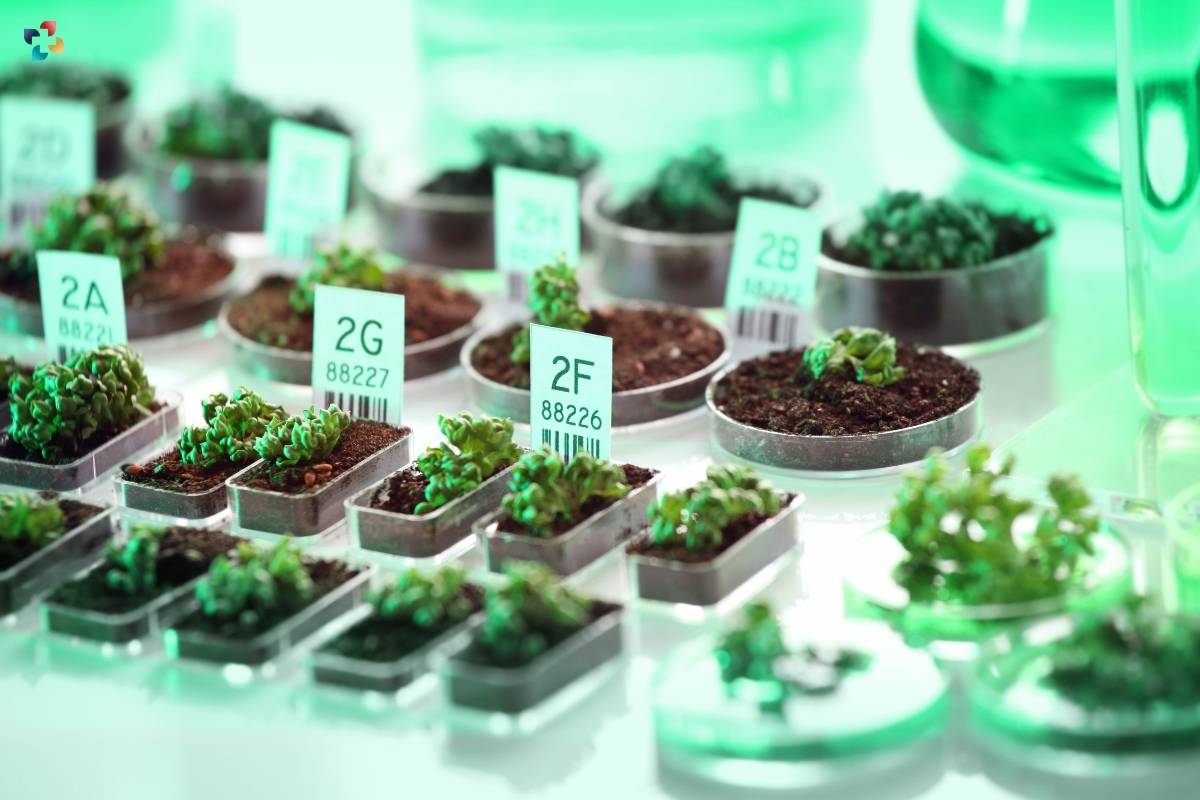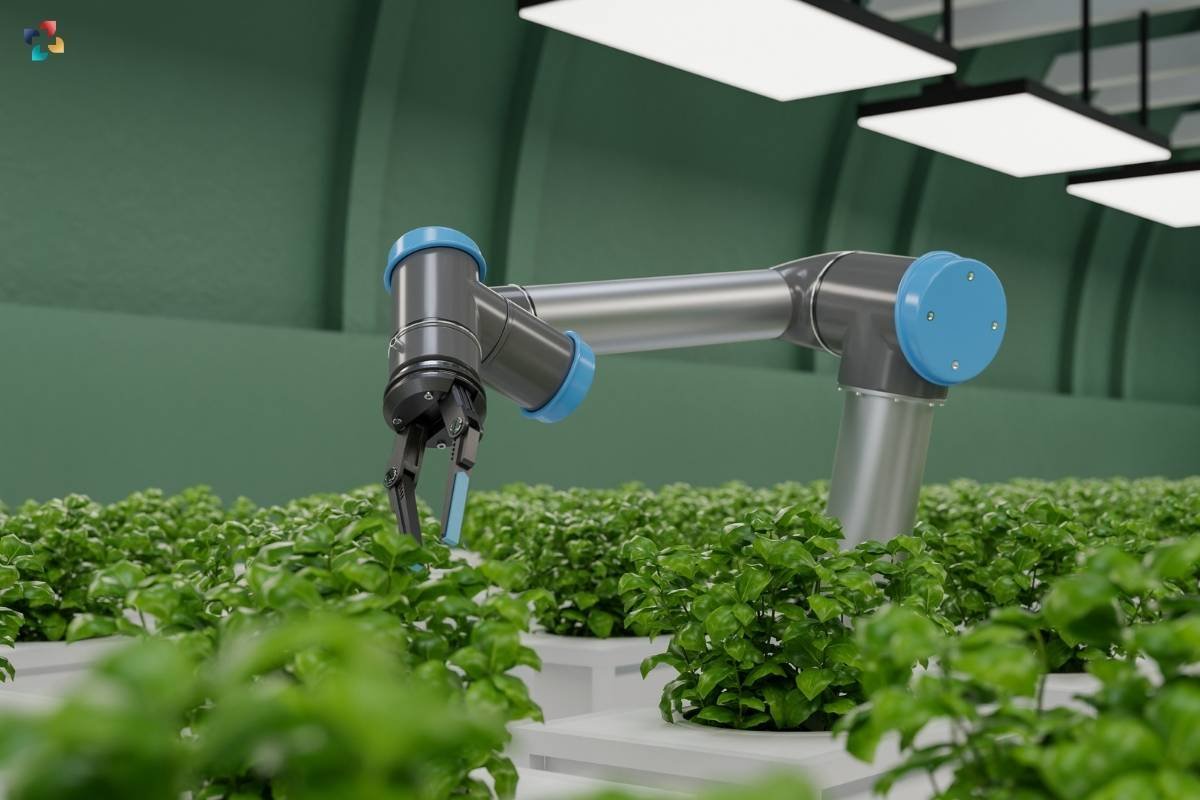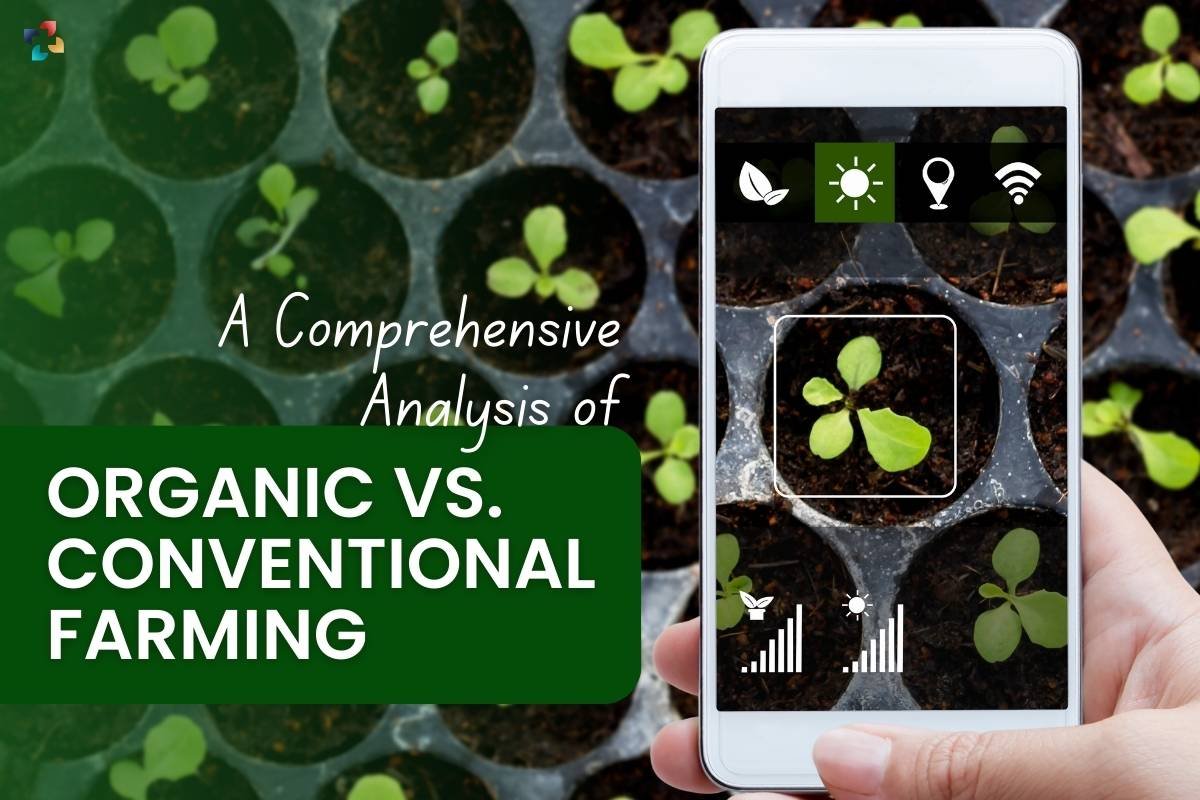The debate over organic vs. conventional farming has become central to arguments about food quality, environmental impact, and sustainability in modern agricultural discourse. Given the growing global population and increasing food demand, it is imperative to comprehend the subtle differences between these two farming methods. This essay explores the methods, effects on the environment, and possible health effects of organic versus conventional farming in an attempt to clarify the intricacies of these agricultural practices.
Defining Organic vs. Conventional Farming
At the crux of the debate lies the distinction between organic and conventional farming. Organic farming is rooted in a holistic approach, eschewing synthetic pesticides and fertilizers while emphasizing natural processes and soil health. In contrast, conventional farming employs synthetic inputs, technological interventions, and large-scale mechanization to maximize yields.
Environmental Impact: Soil Health

One of the fundamental differences between organic and conventional farming lies in their impact on soil health. Organic farming prioritizes soil fertility through crop rotation, cover cropping, and the use of organic matter. This fosters a robust soil structure, enhancing water retention and minimizing erosion. In contrast, conventional farming often involves intensive tillage, which can contribute to soil degradation, increased erosion, and a decline in overall soil health.
Pesticides and Herbicides
The use of pesticides and herbicides is a contentious issue in the organic vs. conventional farming debate. Organic farming relies on natural pest control methods, such as companion planting and biological pest management, eschewing synthetic chemicals. Conventional farming, on the other hand, often utilizes synthetic pesticides and herbicides to combat pests and maximize yields. Concerns about the environmental impact of these chemicals and their potential residues on food have fueled the preference for organic produce among health-conscious consumers.
Crop Yield and Efficiency
One of the primary arguments in favor of conventional farming is its ability to achieve higher crop yields and operational efficiency. The use of synthetic fertilizers, advanced machinery, and genetically modified organisms (GMOs) in conventional farming practices can lead to increased productivity. However, proponents of organic farming argue that the long-term sustainability and resilience of organic systems can compensate for lower immediate yields.
Impact on Biodiversity
The impact of farming practices on biodiversity is a critical consideration. Organic farming’s emphasis on diverse cropping systems and natural pest control methods can contribute to increased biodiversity on farms. Conventional farming, especially monoculture practices, may lead to the loss of biodiversity as large expanses of land are dedicated to a single crop, impacting ecosystems and wildlife habitats.
Water Usage and Conservation
Water scarcity is a pressing global concern, and farming practices play a significant role in water usage. Organic farming’s focus on soil health and water conservation practices, such as cover cropping, can contribute to more efficient water utilization. Conventional farming, particularly in irrigated monoculture systems, may result in higher water consumption and potential runoff issues, impacting water quality.
Energy Consumption and Carbon Footprint
The energy footprint of farming practices is another dimension of the organic vs. conventional farming debate. Organic farming, with its emphasis on natural processes and reduced dependence on synthetic inputs, is often perceived as having a lower carbon footprint. Conventional farming, characterized by mechanization, chemical inputs, and long-distance transportation, may contribute more significantly to greenhouse gas emissions.
Genetically Modified Organisms (GMOs)

The use of genetically modified organisms (GMOs) is a distinctive feature of conventional farming. GMOs are engineered for traits such as pest resistance, herbicide tolerance, and improved yield. Organic farming prohibits the use of GMOs, and proponents argue that their long-term environmental impact and potential effects on human health warrant caution.
Economic Considerations
Economic factors play a pivotal role in shaping farming practices. Conventional farming, with its focus on efficiency and high yields, is often perceived as more economically viable in the short term. Organic farming, while potentially offering premium prices for organic products, may face challenges related to lower immediate yields and higher labor costs.
Consumer Perspectives on Health
Consumer choices are influenced by perceptions of health and nutrition. The preference for organic produce often stems from concerns about pesticide residues and a desire for food free from synthetic chemicals. However, scientific consensus on the health benefits of organic vs. conventional farming-grown produce remains a subject of ongoing research and debate.
Regulatory Frameworks and Certification
The regulatory frameworks governing organic and conventional farming differ significantly. Organic farming is subject to stringent certification standards that dictate farming practices, soil management, and the use of inputs. Conventional farming adheres to regulatory frameworks that may permit the use of synthetic chemicals and genetically modified organisms within specified limits.
Local vs. Global Impact
The debate extends beyond individual farming practices to considerations of local vs. global impact. Organic farming often aligns with principles of local and sustainable agriculture, fostering connections between consumers and local farmers. Conventional farming, with its large-scale operations and global supply chains, may contribute to environmental and social challenges associated with long-distance transportation and centralized production.
Challenges in Transitioning
Transitioning from conventional to organic farming poses challenges for farmers. The initial shift may result in reduced yields during the transition period, and the adoption of new practices requires time, resources, and education. Economic support and incentives for farmers making the transition are crucial for promoting sustainable agriculture.
Technological Innovation in Farming

Technological innovation continues to shape the landscape of both organic and conventional farming. Precision agriculture, data-driven farming practices, and advancements in sustainable technologies offer opportunities to enhance efficiency, reduce environmental impact, and bridge the gap between the two farming paradigms.
Finding Common Ground
Amidst the ongoing debate, finding common ground that integrates the strengths of both organic and conventional farming approaches is a key consideration for a sustainable future. Implementing agroecological practices, incorporating organic principles into conventional systems, and fostering dialogue between stakeholders can contribute to a more holistic and resilient agricultural landscape.
Conclusion:
There are several factors to consider in the argument on organic vs. conventional farming, including economic, health, and environmental ones. In light of the growing world population, it is critical to find resilient and sustainable farming methods. Understanding the benefits and drawbacks of conventional and organic farming is crucial to ensuring that agriculture in the future satisfies the wide range of demands of humankind while simultaneously nourishing the planet. Finding a balance between innovation, environmental stewardship, and human well-being will be essential to guiding these two approaches toward peaceful cohabitation.







